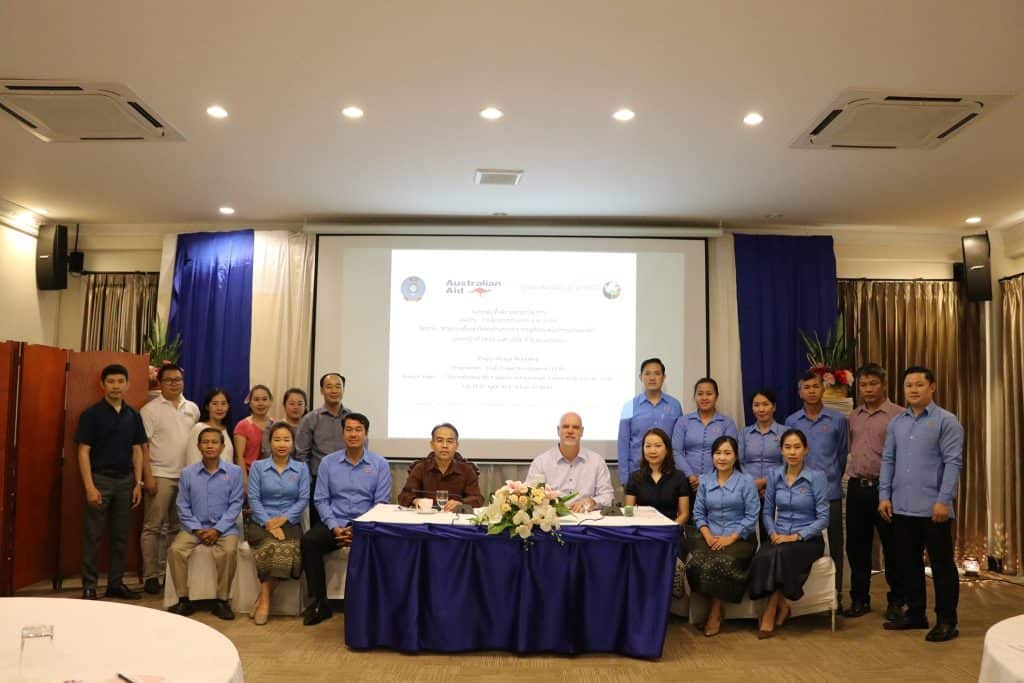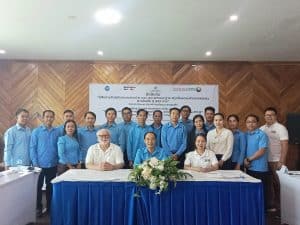
LFTU members at Trade Union Development workshop with Union Aid Abroad-APHEDA.
The Lao economy took a serious hit during the 2023 financial crisis, with inflation skyrocketing to over 40% by February 2023. With rising prices and a steep drop in the value of the kip (local currency), many households saw their savings dwindle as the cost of essentials like food, healthcare, and education soared. These pressures drove many families closer to poverty, particularly in urban areas where food costs were hit hardest. Even as global prices for some imported goods eased, Laos continued to experience high inflation, with ongoing challenges related to foreign currency scarcity and job losses due to out-migration.
In response to this complex economic landscape, Union Aid Abroad–APHEDA’s partner organisation, the Lao Federation of Trade Unions (LFTU) revised its strategy to better support workers, especially in private-sector enterprises. Following the completion of a key project evaluation, several recommendations emerged to strengthen LFTU’s approach. These included building grassroots union capacity across provincial and district levels, ensuring adequate staffing, clarifying union roles, and better communicating the benefits of union membership.
In the revised strategy, LFTU prioritised organising efforts in Vientiane Capital’s Special Economic Zone (SEZ), along with private sector enterprises and the Lao-China railway. With an emphasis on grassroots engagement, the plan includes a “30-60-10” training approach—focusing 30% on training, 60% on practical application, and 10% on review.

Training of Trainers program.
To bring this strategy to life, LFTU engaged 17 trainers in a five-day Training of Trainers (TOT) workshop led by APHEDA’s trainer, Peter Stokes. The workshop covered adult learning methods, Occupational Health and Safety principles, and practical exercises. Trainers will continue to receive support, including recorded practice sessions for ongoing skill development.
APHEDA will stay engaged with LFTU’s capacity-building initiatives, helping the union expand into SEZs, private enterprises, and the Lao-China railway in Vientiane Capital. The focus will remain on recruiting members from the private sector, including those in foreign-invested companies, and supporting trainers through skill upgrades and mentorship. By building a solid foundation for union growth and resilience, LFTU is better equipped to serve its members and adapt to the challenges of the economy.
